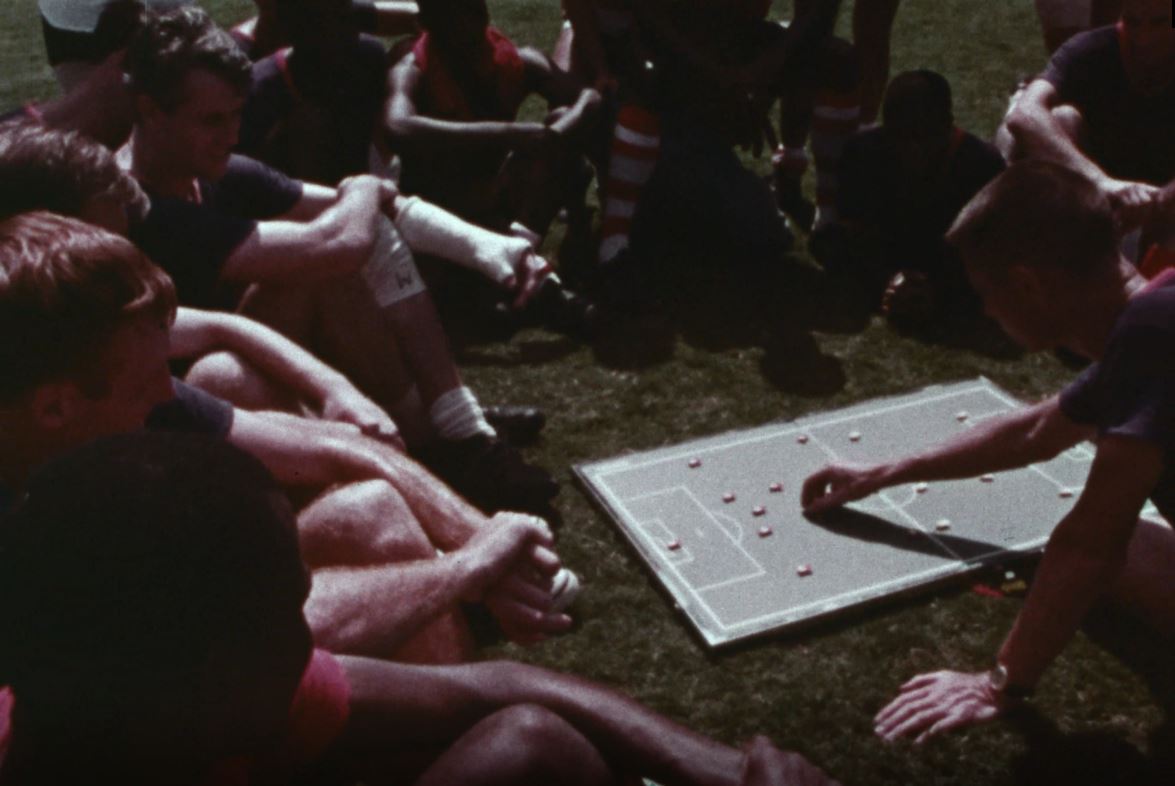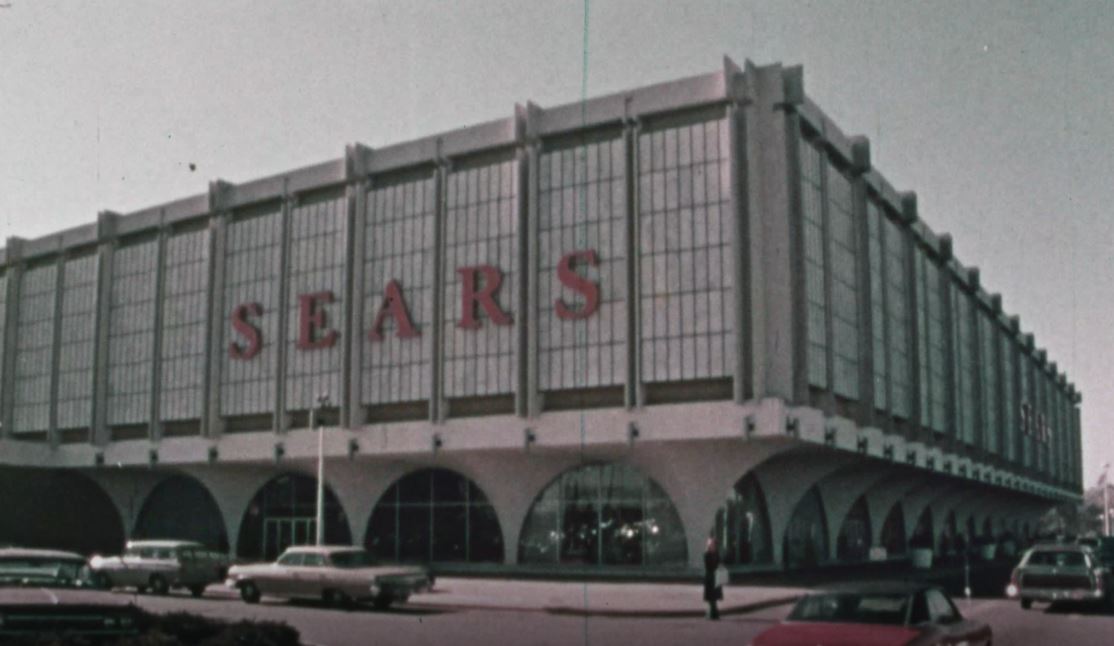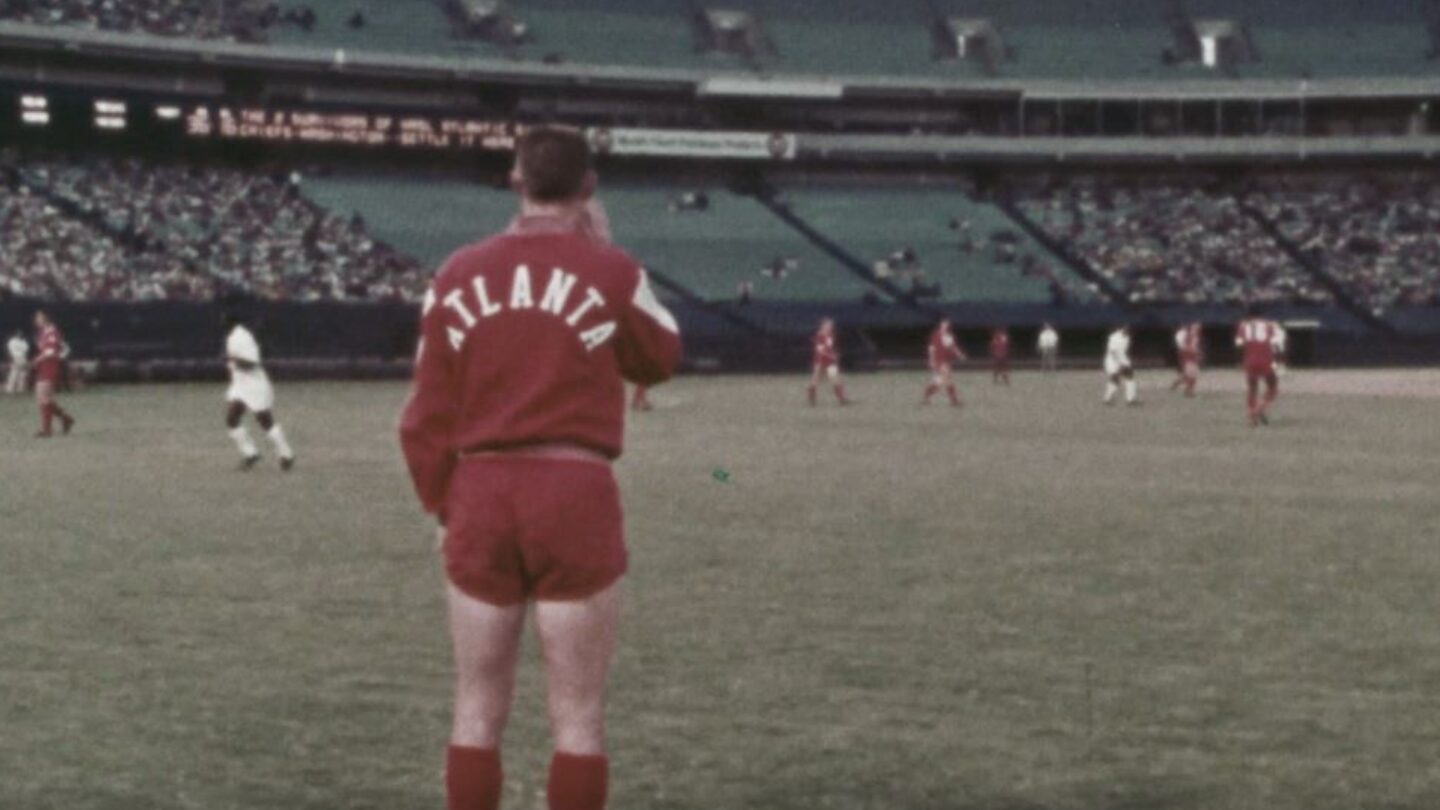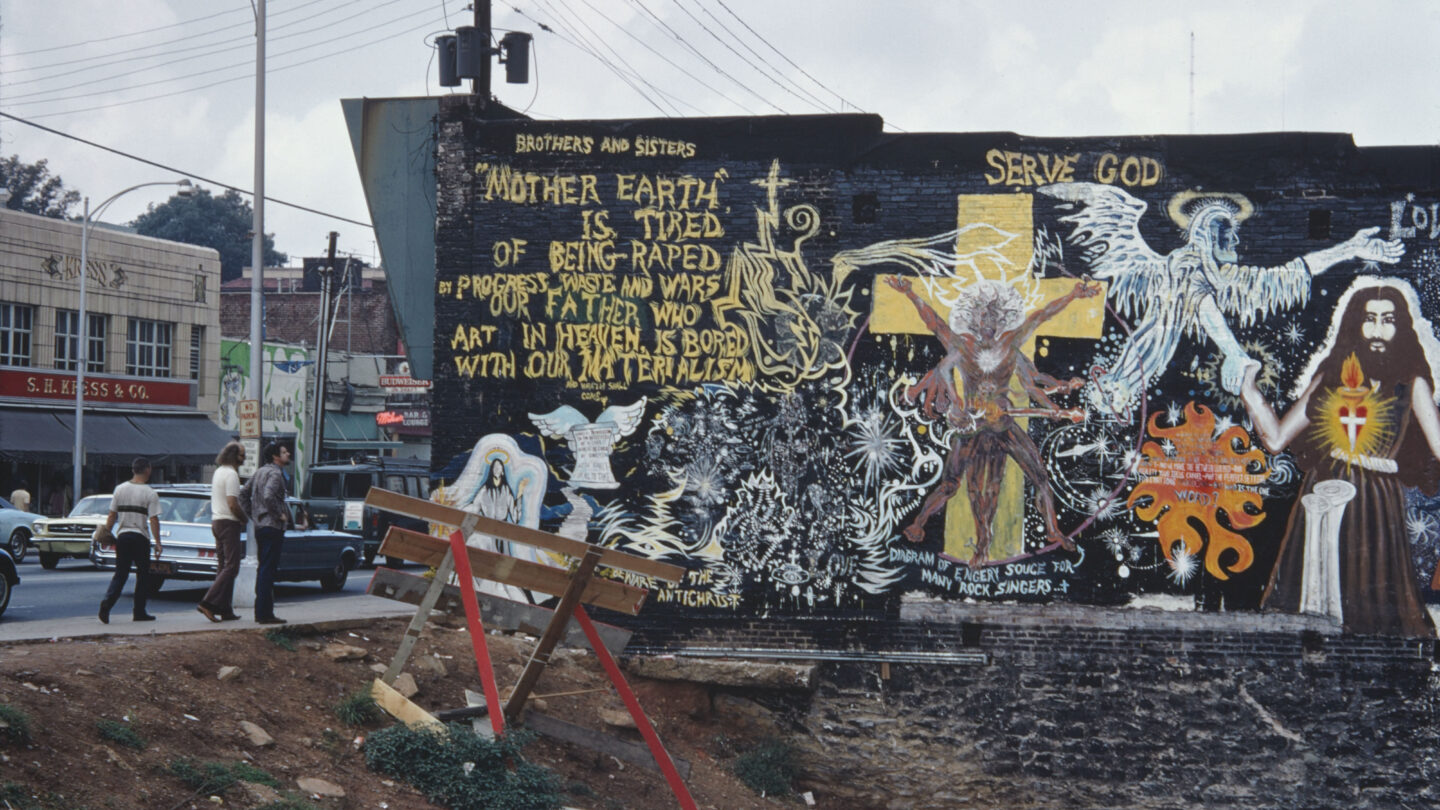
Atlanta Chiefs. Metro Atlanta Chamber of Commerce visual arts materials, VIS 167.125.001, Kenan Research Center at the Atlanta History Center
In 2021, Atlanta History Center was awarded a National Film Preservation Foundation grant to preserve and make available four Metro Atlanta Chamber of Commerce films spanning from the late 1950s to the early 1970s. The films illustrate the impact of population growth on housing in Atlanta, and also features the Chiefs, Atlanta’s first professional soccer team. This funding allowed the Atlanta History Center to pursue preservation work, which entailed film-to-film processing, cleaning, and digitizing the film content to make available to the public on our online database, Album. The films selected for this project complement other research material in the Kenan Research Center, the archives and library of the Atlanta History Center. These materials include the Metro Atlanta Chamber of Commerce records, as well as photographs and subject files that pertain to the events and subject matter documented in the films.
The four films [48 minutes, 47 seconds] offer a view into the change in the city’s landscape due to economic and population growth of during the mid-20th century. The film, Halfway Home, also describes how Atlanta’s growth has impacted African American populations and housing, particularly during the 1970s. Several of the films also discuss various draws of Atlanta during this time period, highlighting transportation, sports, and entertainment outlets throughout the city.
This collection contains original unedited versions of all content. Some material may contain depictions of violence, offensive language, or negative stereotypes reflecting the culture or language of a particular period or place. There may be instances of racist language and depictions, particularly regarding African Americans. These items are presented as part of the historical record for the purpose of education and research. The viewpoints expressed in this collection do not necessarily represent the viewpoints of the Atlanta History Center or any of its officers, agents, employees, or volunteers.

Atlanta: New International City. Metro Atlanta Chamber of Commerce visual arts materials, VIS 167.124.001, Kenan Research Center at the Atlanta History Center
About the Films
Atlanta: New International City [16 minutes, 52 seconds] presents the growth of Atlanta as an economic and commercial center. The film features business and civic leaders describing Atlanta’s role as a hub for economic growth. Featured individuals include real estate developer Thomas G. Cousins, urban developer James E. Cushman, Hartsfield-Jackson International Airport Manager Grady Ridgeway, retail executive Joel Goldberg, corporate chairman Thomas C. Fitzgerald, architect John Portman, Clark College President Dr. Vivian Henderson, and MARTA General Manager Allan Kiepper. The film describes new construction in downtown Atlanta, as well as the names of businesses that have been attracted to the city as a result of this growth. The film also highlights colleges and universities, entertainment, sports, and other activities in Atlanta.

Atlanta Chiefs. Metro Atlanta Chamber of Commerce visual arts materials, VIS 167.125.001, Kenan Research Center at the Atlanta History Center
Atlanta Chiefs [15 minutes, 15 seconds] features Atlanta’s first soccer team, the Atlanta Chiefs, possibly during their 1969 season. The footage features narration by then-captain Phil Woosnam, who introduces the team’s players. It also shows the team playing at Atlanta Stadium, as well as footage of a program created by former Atlanta Chiefs player Howard Mwikuta, and volunteers from the Atlanta Chiefs teaching Atlanta high school students how to play soccer.
Officially titled Halfway Home [8 minutes, 48 seconds], presented by The Citizens Advisory Committee for Urban Renewal and the City of Atlanta Planning Department, the footage shows housing in predominantly African American neighborhoods in Atlanta, including South Atlanta and the historic area around Nassau Street, and utilizes City of Atlanta infographics and maps to highlight the impact of population increases on Atlanta housing in these areas.

Photograph of mural shown in Metro Atlanta Chamber of Commerce footage of Peachtree Street. Cortlandt F. Luce Jr. Photographs, VIS 114.41.02, Kenan Research Center at the Atlanta History Center
The fourth film [7 minutes, 52 seconds] is untitled footage showing businesses on Peachtree Street in downtown and Midtown Atlanta in the late 1960s or early 1970s, including the historic S. H. Kress and Co. building. Notably, the film also shows the area of Midtown Atlanta known as the “The Strip,” including the Aurora Community Center on Peachtree and 10th Streets, and a Baptist community center that was destroyed in a fire in 1972. The film also features images of substandard housing in predominantly African American neighborhoods.
About the Metro Atlanta Chamber of Commerce
The Metro Atlanta Chamber of Commerce (previously the Atlanta Chamber of Commerce) is a private, independent organization founded in 1866 by local business leaders. Originally known as the Atlanta Board of Trade, the organization sought to lower freight rates for the region and to promote direct trade with European nations without having to ship to Northern ports. In 1893, the Chamber organized the Cotton States and International Exposition, which was held two years later at Piedmont Park. Alongside the Retail Merchants Association, the Chamber created the Southeastern Fair Association, which organized fairs from 1916 until 1933. In 1908, the Chamber raised $1.5 million dollars for sewage disposal, water works, and the creation of Grady Hospital, a crematory, and new public schools. To improve transportation, the Chamber raised money to construct the Metropolitan Atlanta Rapid Transit Authority (MARTA) in 1975.
About the National Film Preservation Foundation
The National Film Preservation Foundation is the nonprofit organization created by the U.S. Congress to help save America’s film heritage. The NFPF is the charitable affiliate of the National Film Preservation Board of the Library of Congress. For a complete list of projects supported by the NFPF, visit the NFPF website.
Since its creation by Congress in 1996, the NFPF has provided preservation support to 323 institutions across the country and saved more than 2,613 films through grants and collaborative projects. The grants are made possible by funds authorized through The Library of Congress Sound Recording and Film Preservation Programs Reauthorization Act of 2016, secured through the leadership of the Library of Congress, and the contributions of public-spirited donors.




